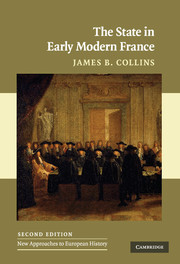Empire of Fear
While French political discourse in the late Middle Ages had been based on ancient Roman ideas that government existed for the common good (le bien public, or la chose publique, a French translation of the Latin res publica), these ideas began to evolve in the 1570s. Although references to the common good continued to be used right up to the French Revolution, they were gradually overtaken by a focus on the good of the State (le bien de l'État). James B. Collins demonstrates how this evolution in language existed at every social level from the peasant village up to the royal court. By analysing the language used in scores of local, regional and national lists of grievances presented to provincial estates and the Estates-General, Collins demonstrates how the growth was as much a bottom-up process as a top-down enforcement of royal power.
- Analyses the language used in political discourse at all levels from the village to the court
- Shows how the shift in language from the common good to the good of the state
- Explores how language both reflected as well as impacted French political life
Product details
December 2025Hardback
9781107030091
362 pages
229 × 152 mm
0kg
Not yet published - available from December 2025
Table of Contents
- Introduction
- 1. The Estates General
- 2. From commonwealth to state
- 3. Retail politics in Bailiwick and local assemblies
- 4. Civic government: town and country
- 5. Provincial estates: the life and death of a Norman commonwealth
- 6. Puissance absolue: popes and kings
- 7. The commonwealth in the shadows
- Conclusion.






.jpg)
